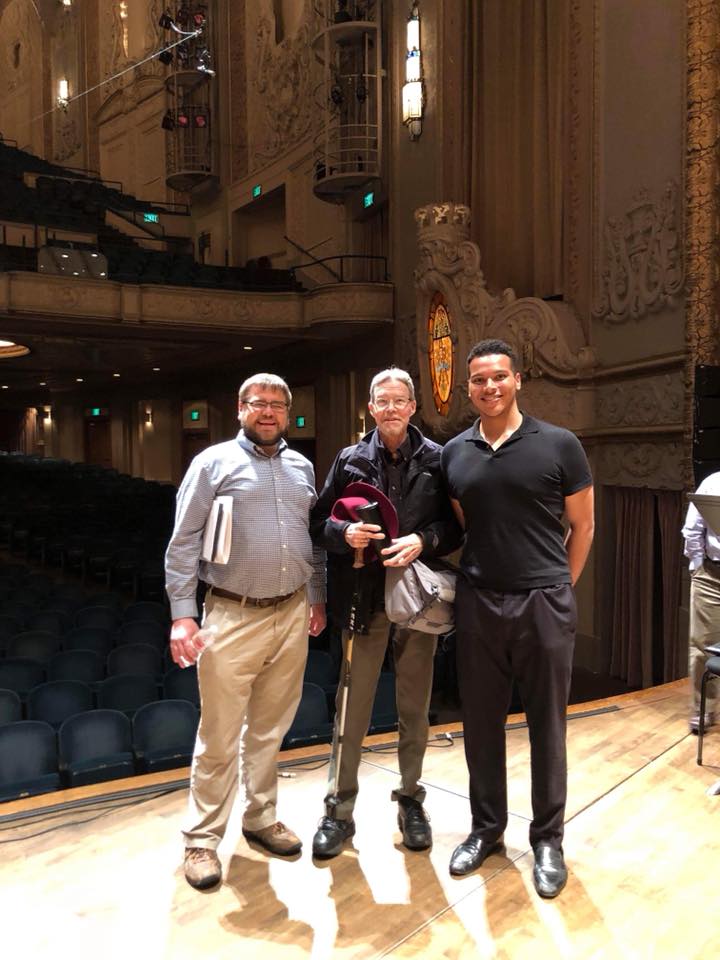The Oregon Symphony recently held an audition for Assistant Principal Bass. The Principal Bassist, Colin Corner wrote some words about the audition winner Braizahn Jones. They are inspiring and effective in describing what one might be listening for in an audition. You can see the original post as well.
It’s taken a minute, but I’m finally doing a post on our recent auditions for Assistant Principal Bass here in the Oregon Symphony. First of all, congrats to recent Curtis graduate Braizahn Jones for winning the audition- on a bass that was also played by Don Hermanns when he was a student at Curtis. It was very special to see the two of them connect.
Secondly, I have a lot of thoughts on this audition and I’ll try to do a brief summary of what we heard. We listened to 36 candidates in the prelims, and out of those 8 advanced to the semis, plus 4 auto advanced candidates. We heard a great level of playing overall, and everyone in the semis was spectacular, but Braizahn set a standard. He really set the bar high, especially being the first candidate in that round. In the finals, we heard 3 wonderful candidates. All three played incredibly well.
Braizahn’s playing really stuck out to us because of the incredible dynamic range, stylistic contrast, and flexibility he had when asked to adjust things. Flexibility is important! Also, I think exploring the limits of dynamics – how low and how big can things get- is incredibly important at auditions. He also took care of note lengths and style – his Mozart was light and well phrased, and his Mahler and Strauss were ripping.
We heard a great level overall at this audition, and I congratulate everyone for taking it. That being said, there were a few things I noticed, particularly in the prelims, that a lot of players have tendencies to do- call them my pet peeves.
Beethoven 5 Scherzo – many players start the f quarter notes after the intro very hammered and accented, then have nothing left for the sfz’s later. These are melodic quarters, no accents are written on them. Also important is to keep the same tempo. Lots of people tend to not match the previous tempo before the rits.
Brahms 2 letter E- I noticed may players tend to almost double dot the 16ths. In Brahms, I always go for a heartbeat 16th, so that it sits a bit. These are German 16ths. Also not too fast for tempo!
Mozart is a chance to really show lighter style- but long lines are so important, no false accents!
In general, it’s great when you can get a beautiful sound and a great vibrato. But for auditions, that’s not enough. You have to make the vibrato and the sound suit the direction and the energy of the music. Basically, when you play Strauss, make us hear Strauss, when you play Brahms, make it Brahms. Just because there’s a long note and suddenly you have time to do vibrato, that’s great, but make it fit with the phrase.
I’m signing off for now (I could probably write a novel on this), but congrats again to Braizahn and everyone who took the audition!
Bass News Right To Your Inbox!
Subscribe to get our weekly newsletter covering the double bass world.

